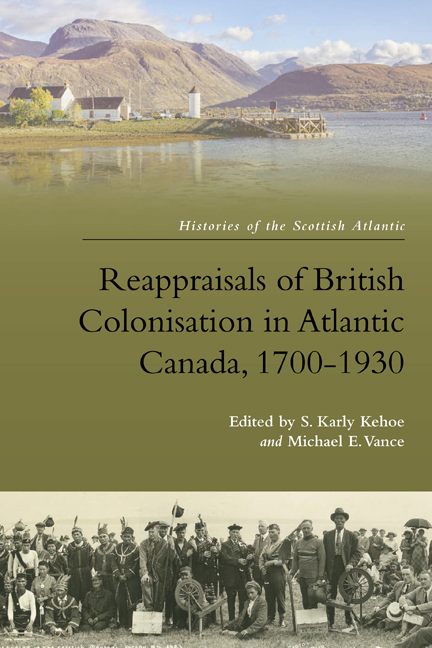5 - New World, Old Problems? Aristocratic Influences on Colonial Governance and Land in Nineteenth-century Atlantic Canada
Published online by Cambridge University Press: 10 October 2020
Summary
‘Proprietorial rights, in the sense in which they exist in England, are very unsuitable to the atmosphere of this country [Canada], and I imagine a perpetual agitation will prevail in the island [Prince Edward Island] until its land tenures are assimilated to those of neighbouring provinces.’
Introduction
In the nineteenth-century British and Irish rural imagination, Atlantic Canada was regarded as a place of refuge from the abuses and injustices of the old feudal world; an escape, where a family might settle and cultivate land free from the dead hand of landlordism. It was the vanguard of one of the most popular settlement colonies of the British Empire, a land of promise and opportunity, and many hundreds of thousands were drawn across the Atlantic by these attractive qualities. Anti-landlordism as a political as well as an economic and cultural movement increased in nineteenth-century Britain and Ireland, paralleling the great European exodus to North America. But this was not the only story of British colonisation. Atlantic Canada was a location of escape, not just for the rural poor, but for many of Britain and Ireland's landed elite. Although much smaller numerically, in terms of influence, governance and policy – constitutional and in relation to land tenure and ownership – they more than held their own.
This chapter will examine aristocratic influence on colonial governance and land in Atlantic Canada in the nineteenth century, using the governor-generalship of Frederick Temple Hamilton Temple Blackwood, Lord Dufferin (1872–8) as its key exemplar. It has three aims in view: first, it will seek to explore landed and aristocratic understandings of Atlantic Canada as a place in its own right, but also as part of the wider web of the British Empire. What purpose did Atlantic Canada serve, in their view, and what kind of impact did it have on them directly? Second, it will consider the direct influence that landed elites had on the Atlantic provinces. Using Prince Edward Island (PEI) as a case study, this chapter explores the ways and means by which both agitation and its intellectual underpinnings were communicated, challenged and incorporated in Atlantic Canada, in the context of the wider British World.
- Type
- Chapter
- Information
- Publisher: Edinburgh University PressPrint publication year: 2020



